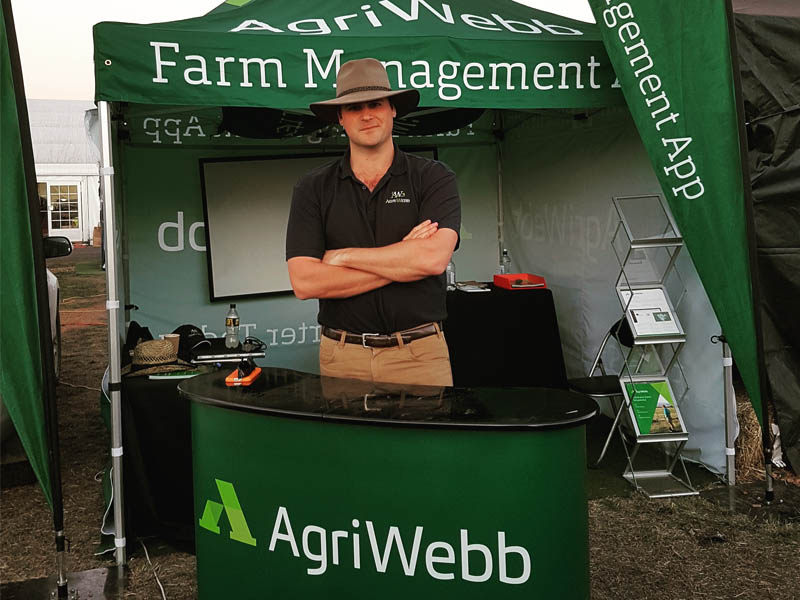In a country where debates about innovation policy tend to be about city-based issues, it is noteworthy and significant that local AgriTech companies won four of the nation’s most important technology awards on Thursday night.
And given the strength of the post-election backlash against the CBD-centric, startup-only attention given to innovation discussions, these AgriTech successes are cause for celebration.
AgriWebb, the Melbourne-based data analytics platform for smart farms, won the Startup of the Year category at the Australian Information Industry Association’s (AIIA) annual iAwards, while Canberra-based livestock medication automation company Automed won the Victorian Government Inspiration of the Year Award, as well as both the Mobility Innovation of the Year, and Industrial & Primary Industries categories.

AgriWebb was also awarded a merit in the Industrial & Primary Industries category.
If you include the CSIRO’s research on the Global Initiative for Honey Bee Health which was awarded a merit for the Public Sector & Government category, it is hard not to see the AgriTech innovators have had a big year.
How rural and regional innovators should be supported has been a core policy debate in recent years. And it’s not straight-forward. But as policy-makers look to industries in which Australia has some competitive advantages, primary industries are rightly a focus.
Australia is the largest exporter of beef in the world, despite being only the third or fourth largest producer, AgriWebb founder and chairman Justin Webb says. One of the reasons Australian beef does so well in export markets is because of the traceability and transparency of its livestock.
The traceability data and the transparency of the systems behind it mean that Australian beef is a trusted product. Mr Webb says we’re a world leader in this area. It is a significant competitive advantage that is translated every day into additional and premium export dollars for the country.
So it is somewhat surprising, he says, that some of the data tools to support on-farm decision-making have simply not taken advantage of available tech. AgriWebb is a platform, the genesis of which was in solving this on-farm data management problem.
And farming is very much a data-driven exercise, according to Mr Webb, even if that data has been managed from a notebook, or a set of spreadsheets – or even kept in the head – and passed from generation to generation.
AgriWebb is a record keeping and farm management system, and it provides a platform for benchmarking best practice. Ultimately it will support the full range of farm automation tools.
“Very simply, all we are doing is using technology to aggregate and contextualise that data. And that is then used to enable better decision-making,” Mr Webb said.
AgriWebb co-founder and data scientist Kevin Baum said the benchmarking performed through anonymised data is important. “There are larger trends that you can start to discern about what farming best-practice looks like,” he said.
Ultimately the platform will utilize the promise of drones and satellite imagery and sensors and all that good stuff being promised by the Internet of Things.
But right now, Mr Webb says the industry needs to focus on the basics. “The reality is that we [in Australia] just have to take the first steps of using technology to make [the farmers] life easier and to make better decisions,”
In policy terms, AgriWebb is interesting. It needs the intensely practical understanding of on-farm challenges, but simultaneously needs access to a pool of coding/mathematical excellence. This is not straight forward.
The company is based in Melbourne. Sort of. Mr Baum says the development team is in Melbourne because that’s where the best people are. He says the company will hire the best people wherever they are – and that there are a few people in satellite centres – but for the development team, it’s important to have all that top-flight talent sitting in the same room.
“That sort of necessitates that the development team is city-based. But having said that, a huge focus of the company is to make sure everyone – even though they work in the city – has rural exposure, that they are out spending time on farms every month,” Mr Baum said.
“They’ve got to be getting their hands dirty, and making sure they understand the problem,” he said. “You can’t just have an abstract understanding.”
For Justin Webb, a Harvard and Oxford educated, self-confessed maths geek who comes from five generations of sheep and cattle, says the Australian Government has done a good job in raising the level of discussion in Australia about innovation policy.
But he say there are fairly specific issues faced by rural and regional innovators that are deserving of special attention.
And there’s a big potential pay-off he says, for no other reason than the fact that primary production is an area of fundamental importance to the Australian economy.
Do you know more? Contact James Riley via Email.

